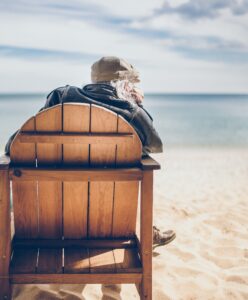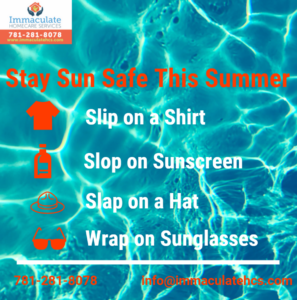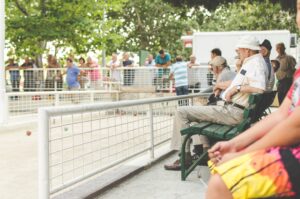
Image c/o Unsplash
Summer is the perfect time to spend time with family and friends enjoying the outdoors. However, in recent times, the country continues to experience extremely hot summers.
The summer heat could be detrimental to seniors due to deadly heat waves.
The CDC reports older adults aged 65 and above accounted for approximately 40% of all heat-related deaths. It was the highest rate of heat-related deaths among all age groups.
Older adults are unable to handle the heat because they do not sweat effectively and have poor circulation. Underlying health conditions such as dementia, heart disease and diabetes also compound the risk.
Fortunately, there are ways we can keep our senior loved ones safe at home this summer.
-
Keep Homes Cool
A senior’s home should not exceed for a long period.
So, if your house is too hot, you can spend time in areas with air conditioning like the movies, malls or libraries.
For those with air conditioning, it is important to first clean out the filters. Clean filters will circulate clean air in the house.
Are you worried about energy consumption? Check out energy saving tips from the Department of Energy.
If you do not have air conditioning, use fans with your windows open especially on days with extreme heat.
You can also check more ideas on how to cool your house without air conditioning.
Use blinds, shades or drapes to keep out heat from the sun. Outdoor awnings can also help keep the heat out of the house.
-
Stay Hydrated
The body loses potassium and sodium through sweating. Older adults should drink water or plenty of fluids throughout the day to avoid dehydration. Do not wait to be thirsty to hydrate.
Seniors should stay away from alcoholic drinks and caffeine as they accelerate dehydration.
Consider cool treats low in sugar and with a high-water content such as sugar-free popsicles.
Water high fruits and vegetables like cucumbers and watermelons are a healthy way to stay hydrated.
The threat of overheating could lead to physical strain, therefore, drinking water and other fluids will provide the necessary nutrients to stay healthy.

Slip! Slop! Slap! and Wrap technique borrowed from the American Cancer Society on Skin Cancer Prevention Activities.
-
Avoid Direct Sun Exposure
Seniors should avoid direct sunlight especially during peak hours of 10 A.M. and 3 P.M. Identify shaded areas outdoors to protect seniors from UV rays.
Use the Slip! Slop! Slap! Wrap! technique to stay sun smart.
Slip on a Shirt
Slip into the Shade
Slop on Sunscreen
Slap on a Hat
Wrap on Sunglasses
-
Consult Your Physician on Your Current Medication
Dehydration can be accelerated by medications with side effects of electrolyte or fluid loss. Diuretics and antibiotics can block your body’s natural ability to cope with the heat and sun. Consult your physician to ensure your medication does not led to heat-related health issues.
-
Invest in Sunscreen and Bug Repellent
Purchase a broad-spectrum sunscreen lotion of SPF 15 or above. Keenly check the sunscreen ingredients to prevent skin reaction. Seniors should apply it on exposed skin whenever they spend time outdoors.
Bugs tend to be abundant in the summer. Consider using bug repellent when going outdoors.
If your house is infested with bugs, you can use bug spray. However, spray the house when you do not intend to stay in the house for at least 2 to 4 hours to prevent irritation.
-
Limit Strenuous Exercises or Physical Activity
During hot days, senior’s bodies work hard enough to keep them cool and healthy. Adding any strenuous physical activity or exercise can be dangerous for seniors.
Tedious activities such as gardening and mowing loans should be done on cooler days or passed on to landscapers.
For seniors who exercise, consider early morning or late evenings for your exercises. Alternatively, consider cooling exercises like swimming.

Image c/o Unsplash
-
Frequent Cool Down Breaks
For seniors spending time outside, taking numerous breaks is necessary for recovery.
Create a cooling area in the senior’s home and install a cooling device that works properly for faster recovery.
-
Look Out for Heat Exhaustion Symptoms
If you are caring for a senior this summer, look out for the following heat exhaustion symptoms or complaints:
- Cold, pale or clammy skin
- Light-headedness
- Fainting
- Extreme thirst
- Excessive sweating
- Vomiting or mild nausea
Like and follow us on Facebook, Instagram & Twitter.
Subscribe to our YouTube Channel


